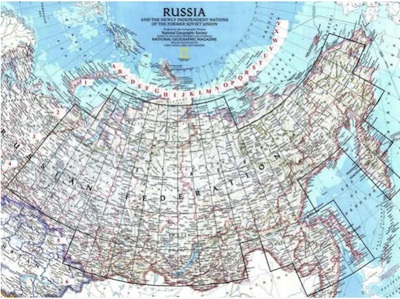
Mathematical fire fighters.... Siberia needs you!
Make your childhood dreams come true and join the Paris Fire Brigade as part of the 2012-13 Mathematical Competitive Game. This year's game is brought to you by the French Federation of Mathematical Games, Société de Calcul Mathématique SA as well as The Paris Firemen Brigade and is open to anyone to enter either individually or in groups.

The previous games have also all been based on real life problems – designing a bus or electricity network or searching for the best car itinerary in partnership with transport or electricity companies – and solving them usually takes several months of work.
This year's game is to decide how best to use your limited resources of firefighters and equipment to fight fires and minimise their damage across the whole of Siberia. This huge region is broken up into cells defined by latitude and longitude, so these vary in size as well as the their level of population and landscape. There are mathematical descriptions of the ways the fires start, spread and the damage they cause as well as for modelling your firefighting capacities and the way they can combat the fires. Your job is to decide how to distribute your firefighters and specially equipped planes and then estimate the cost from damage from the fires in one summer, the cost of your firefighting strategy and the probability that your strategy to keep costs to this level will work.
And there's not only mathematical glory and the gratitude of Siberia on offer, there's also up to 500 Euros in prizes for the winners. You can find the details of this year's competition here and download the data. Good luck!
To get you thinking about how you can mathematically model fires, read our article Matrix: Simulating the world Part II about simulating the spread of forest fires using cellular automata.. The example below has either bare earth (grey squares) or trees (green squares), with squares turning green as new trees grow. Tree's catch fire (and their squares turn orange) as a result of lightning strike and the fire spreads to all adjoining squares with trees.